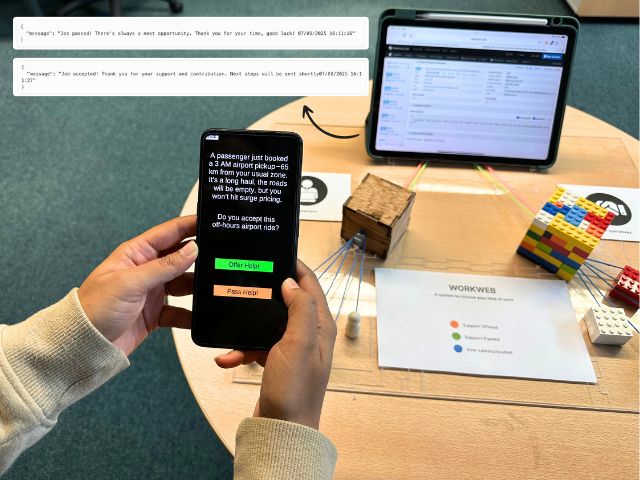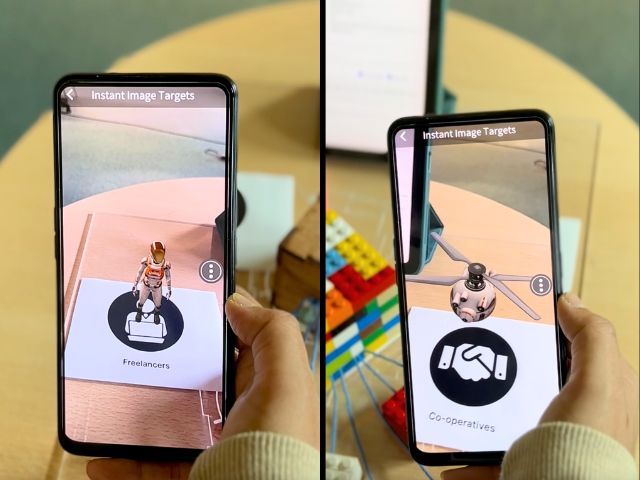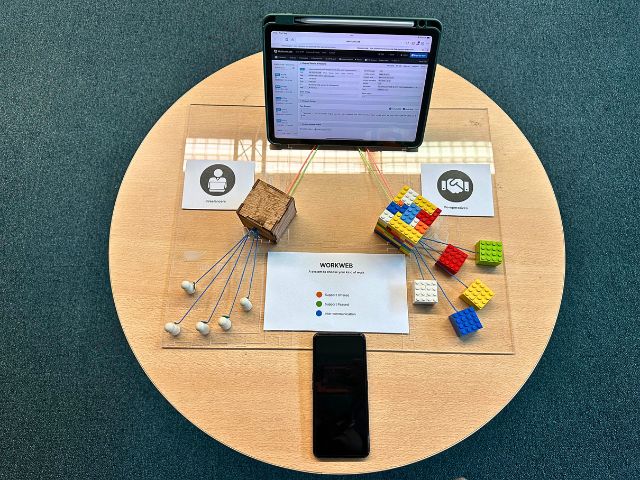Suchira Dhar
WorkWeb: A Design Provocation for Worker Resistance and Decentralised Care Infrastructures
This study discusses the Decentralised WorkWeb prototype, an interactive tabletop installation that visualises a distributed, peer-to-peer platform, with physical nodes representing contributors to the network. Designed to reject traditional hierarchies, the prototype encourages reflection and collective decision-making around labour, care, and refusal, promoting autonomy, solidarity, and well-being in the workplace. Interaction with the prototype is mediated through an augmented reality (AR) application, WorkWeb, accessed on a mobile device. Users scan the icon of a node - either representing Freelancers or Co-operatives - to reveal a corresponding 3D character. After approximately five seconds, this character is replaced by a mobile interface presenting a scenario specific to the selected node, accompanied by two options: 'Offer Support' or 'Pass Support'. Selecting Offer Support indicates a willingness to contribute services to the network; Pass Support signals a decision to resist or refuse the work request. User selections trigger an immediate real-time response on the device.
Choosing Offer Support displays: Job accepted! Thank you for your support and contribution. Next steps will be sent shortly.
Choosing Pass Support displays: Job passed! There’s always a next opportunity. Thank you for your time, good luck!
The project is grounded in the framework of Slow Technology from Interaction Design and HCI, which advocates for intentional, reflective engagement rather than efficiency-driven interaction. By addressing the pressures of fast-paced, surveillance-oriented work cultures, it explores how digital tools might support decentralised care, resist monitoring, and reclaim temporal agency - contributing to more humane, sustainable modes of labour organisation aligned with post-work imaginaries.



